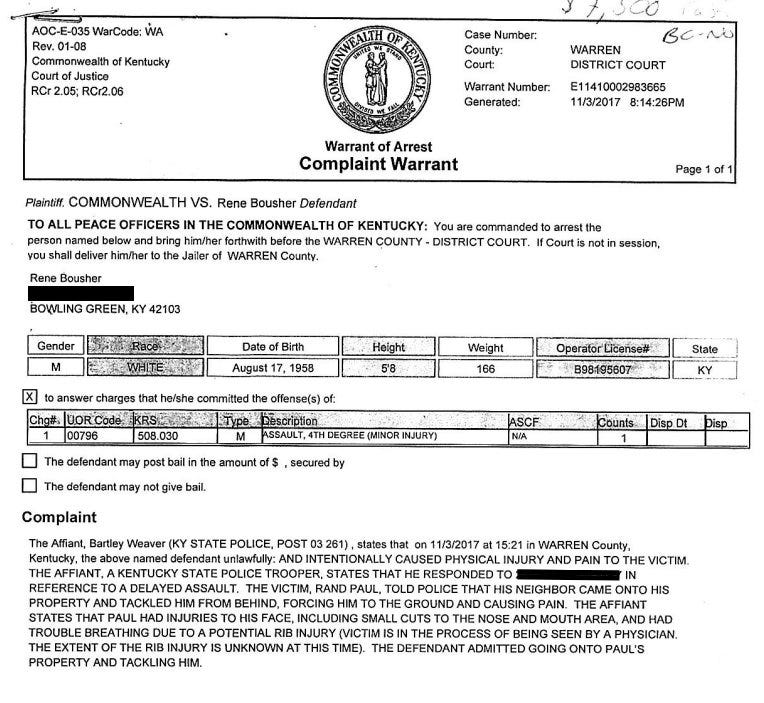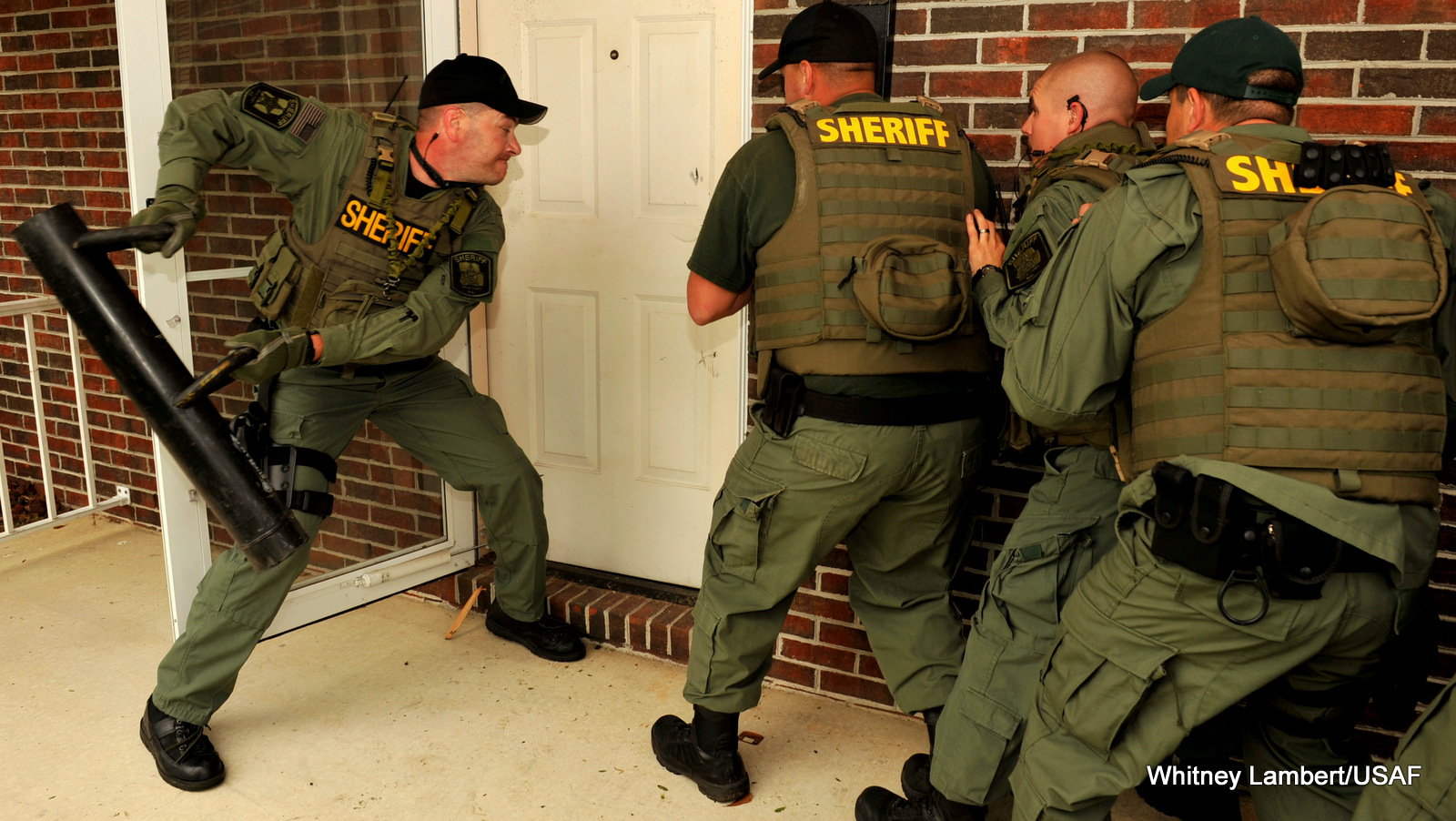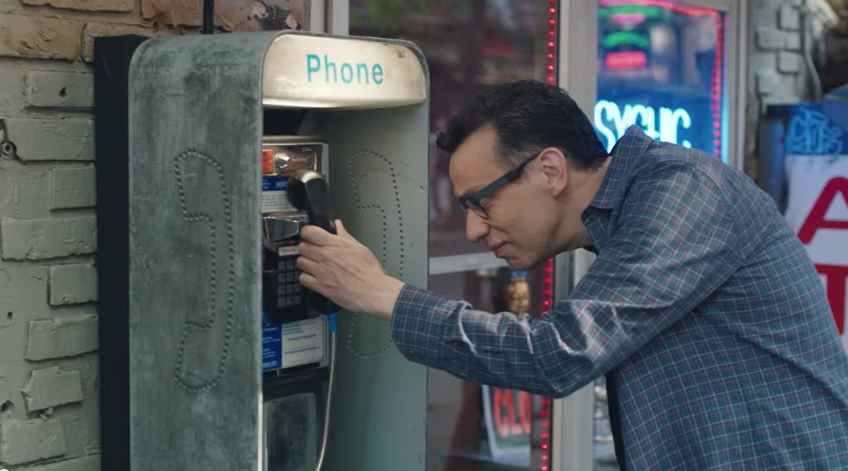If you’re concerned about having a warrant out for your arrest, you should check right away. Fortunately, there are tons of free ways to find out without having to look into the dark web. Even if you don’t want to use the internet, there are a few ways to run a free arrest warrant check.
Most of this article focuses on how to run a free arrest warrant check on yourself. But this process applies equally well to looking for a suspected warrant on someone else.
So, let’s get to it!
Why You Might Want To Check For An Arrest Warrant
This might seem like a no-brainer. But not all arrest warrants are issued because someone committed a high-caliber crime or because you’re just a “bad person.” You can have a warrant out because you did something as simple as forgetting to pay a parking ticket. Or you’re a suspect in a crime – even if it’s a misunderstanding and you weren’t involved.
You can also have a warrant out for something like bouncing a check. Even if you didn’t mean to and never even knew it bounced.
Anything that would amount to a felony or a misdemeanor is grounds for police to get an arrest warrant. As long as they can prove you did it or it’s a felony charge. Being suspected of a misdemeanor isn’t usually enough for an arrest warrant. But it is enough for a felony.
Additionally, if you don’t show up for court or pay a ticket, you may have a warrant. Even if you never knew you had court scheduled. I almost had this happen with jury duty because I didn’t get the letter. It’s not as difficult or unheard of as you’d think.
So, again, you don’t need to commit murder to find yourself with a warrant.
How Warrants Work & How Long It Takes
In order to get an arrest warrant, police officers need to convince a judge that a crime was most likely committed. And the suspected crime was likely committed by the person they want a warrant for. The burden of proof is not super high at this stage, but facts need to be present.
In order to make their case, an officer must submit an affidavit. The affidavit has to be signed under oath and contain enough facts to convince a neutral judge of probable cause. IE: that you are very likely the person who bounced a check when buying diapers because it was signed by you and they have video camera footage of your purchase.
Or that you likely tried to commit insurance fraud because your car that you couldn’t afford was conveniently totaled the day before it was supposed to be repoed.
If they can convince a judge of these two things with an affidavit, then the judge will grant them an arrest warrant. But this process is pretty similar with bench or search warrants as well.
The judge, however, may put restrictions on the arrest warrant. Something like you can only be arrested between 6 a.m. and 6 p.m. or you can’t be arrested if you’re at work. But this all depends on the severity of the crime. Sometimes the bail amount will also be included in the warrant.
Obtaining a warrant doesn’t usually take more than a day. However, it can take several days for a warrant to “hit the system” (the law’s archaic computer system, that is.)
Additionally, warrants do not expire or just go away. There is no statute of limitations on the warrant itself once it’s been issued. But, occasionally, you can get out if it if the information on the warrant isn’t right.
Incorrect Information On Arrest Warrants
Sometimes facts are misstated, incorrect, or otherwise don’t hold water. For example, the location could be wrong, the name on the warrant could be misspelled, or you can otherwise prove the warrant (at least as-is) isn’t for you. Or that they’re violating one of the mandates on the warrant. Like they’re arresting you at 6:30 pm, which is outside of hours on the warrant.
In an ideal scenario, police officers should show you your arrest warrant, but they don’t always. If you can prove that the warrant isn’t for you, the police shouldn’t proceed with the arrest. But that also isn’t always the case.
However, it should be noted that clerical errors aren’t enough to invalidate an arrest warrant. If an arrest warrant says “Jonh” instead of “John,” that wouldn’t be enough. But if it said 134 North St, when it was should be 1340 North Rd, that might do it. At least for now. Providing both locations actually exist.
There are, however, some cases where running a check for an arrest warrant won’t help you.
When Police Don’t Need An Arrest Warrant
The police may still hope to arrest you, it just won’t show up as a warrant. You should only be seriously concerned about this if you are involved in a serious crime. But definitely something to consider if you’re being falsely accused, as well.
They all revolve around probable cause.
When you let them into your house
I’ll give you some advice my lawyer gave me. It cost me $30, so you’re welcome. “Police, pastors, and lawyers are great to have – but you never want to invite one into your house.” Although it’s unlikely a criminal would do this, someone else who lives in the house could. And anything they see, hear, or even smell – without a warrant – can be used against you in court.
They’re in pursuit and someone enters an apartment or house
If you’re in this situation, you’re certainly not reading this article. Er, I hope not. In this particular case, the police would need to be in “hot pursuit.” Which means they followed the suspect from whatever chase was happening straight into the building.
At which point, they don’t need a warrant to make the arrest, obviously.
An officer believes someone or evidence is in danger
This is referred to as exigent circumstances. This one is obvious, if someone’s in danger, the officer shouldn’t wait for a warrant to come through. The same is true for evidence. But this clause is rarely used for the latter.
If someone had evidence of their crime on their computer and the police thought they would destroy it, they don’t always need a warrant. But – more often than not – it’s more complex than that when it comes to evidence.
How To Find Arrest Warrant For Free
Okay, so we know when a warrant check won’t help, when it would, and why you should probably check. Even if you don’t think an arrest warrant should exist. But how exactly do you go about doing it?
Looking For Arrest Warrants Online For Free
This part is so super important: almost no online database resources exist for free.
If you want to look online for an arrest warrant, you’re unlikely to find one for free because;
- Arrest warrants don’t (usually) become publicly available until after charges have been filed. Which takes substantially longer and you would’ve received something in the mail about your charges anyway.
- If it’s a potential felony charge or higher, they won’t file charges without an arrest if there’s a warrant. Which means if you’re facing a felony, you won’t have access to the warrant in most cases.
- The majority of sites don’t partner with law enforcement to get arrest warrants online in a searchable public database. And given that warrants only become publicly available after charges have been brought… see above points.
- Most of these online services are equivalent to an unprofessional background check. Background checks (regardless of quality) are never free.
But if that doesn’t deter you, that’s perfectly fine. Just don’t expect the arrest warrant search to be free online. Even if it says it is, I can almost guarantee you it’s not. However, The Most Wanted is the only one we’ve found as far as databases are concerned.
But there’s a huge catch: It’s only for warrants out in Indiana.
If you want to search online for free and you’re not in Indiana, you would need to Google “arrest warrants in [insert county & state] and use whatever local government websites pop up. Now, if you think you might have warrants out in different states, you’ll need to Google every state and county that you think is a possibility.
Arrest Warrant Search Sites (Paid)
If you might have warrants out in multiple states or counties (or you’re just curious if you do) paid routes are the best option. Additionally, they’re the best option if you’re looking to find arrest warrants on someone else.
- Beenverified.com
- Truthfinder.com
- Instantcheckmate.com
We’re not affiliated with these guys in any way, but I’ve used them to run checks on myself to see how accurate they are. And they miss some minor stuff (thankfully my current address is one), but they do pull up some creepy stuff. They do not, however, pull up any of my court cases because police weren’t involved. And when they were, I was the plaintiff.
They have relatively cheap trials that seem worth it(ish) to me if I was interested in looking this stuff up, but I whole-heartedly recommend not doing a whole month unless you’re just super nosey. Then it might be interesting. Okay, moving on…
Check With Law Enforcement
Yeah, I know. But hear me out.
Police stations are really one of the few places you can go where it’s quick, easy, and free to check. I don’t necessarily advise going into the police department to inquire – especially if you think you’ll be arrested on the spot*.
A slightly safer – but still potentially sketchy option – is to have someone you trust go and ask a law enforcement official. Although, since it’s not public knowledge, they may not release this if they think you’re a flight risk or if your local laws don’t allow the release of that kind of information.
Additionally, you or someone you trust can call. Although there is a chance that they may not give the information up over the phone. I don’t necessarily advise visiting or calling your in-town police department, but a police department in the same county should have the same level of access.
But you’d have to call into the county that the warrant would be out in, not just your local county if nothing happened there.
*Note: if you have a bench warrant out, you will likely be arrested on sight.
Go To The Courthouse
There’s a relatively low chance you’ll be arrested on the spot at the courthouse. Though not entirely out of the question. Because, you know, there are usually cops there.
But if you know which jurisdiction the arrest warrant would fall under, you can go to the corresponding courthouse to find out if there’s a warrant. Unless you committed a serious crime, you should be fine* to walk out of the courthouse. Although you’ll be in for some social awkwardness.
This is usually free. But if you go out of the jurisdiction, they will usually charge you for the records. How much they charge depends on the courthouse and if you want it printed out.
*Note: if you have a bench warrant out, you will likely be arrested or detained on sight.
What If I Find Out I Have An Arrest Warrant Out?
Call a good defense lawyer. I would highly suggest paying for one. I’ve used pro bono, I’ve used reduced fee lawyers, sliding scale lawyers, free legal aid services, and paid for high-priced lawyers. And I can tell you the ones you pay and keep on retainer absolutely work the hardest.
I have nothing against all my other lawyers (or nothing big enough to air here, anyway) but the lawyers that I kept on a hefty retainer were hands-down the best ones I had.
Fortunately, most lawyers offer you a free consult.
It’s usually short, brisk, and rather standoffish feeling, but it gives you a good starting place for shopping around. Find one you feel comfortable and confident in. You DO NOT want a lawyer that promises you the moon and the stars and the sea. You want a grounded, realistic, level-headed lawyer, so do some legwork and go through all the bad reviews you can consume.
But I get it, not everyone has thousands of dollars they can throw at a retainer and a monthly legal bill. Lawyers are not cheap. But you have a few options if you don’t have the cash for a lawyer.
Court-Appointed Lawyers
If it’s a felony charge, you can get a court-appointed lawyer. Occasionally you can get a court-appointed lawyer for misdemeanors if you’re potentially facing jail time. But you’ll want to get some free legal help on how you should go about turning yourself in and requesting a court-appointed lawyer without incriminating yourself.
Do not underestimate the importance of avoiding incrimination when turning yourself in.
Of course, if you go this route you should absolutely stay silent without your lawyer. Requesting a lawyer after you turn yourself in is the only thing you should say.
How To Find Pro Bono Lawyers
Most pro bono lawyers don’t help with defense cases that involve warrants. Court-appointed lawyers for these types of cases are pro bono lawyers, so that’s where you’ll likely find one.
But you can try to find one that might help by looking up your state’s bar association website and going through their pro bono directory.
Other Free Or Low-Cost Legal Services
Since this is such a broad topic and varies state-by-state, we actually put together a whole resource list of free and low-cost legal help.
Oftentimes, lawyers (especially low-cost ones) won’t be available until about a year down the road. If this is the case, your potential lawyer will likely tell you to ask the court for a continuation until they’re available to represent you.
Sometimes you have to show you at your scheduled date and time to do this and ask a judge to grant you the continuation. The judge can say no. But if the judge says no, you can ask for a court-appointed lawyer then, if they don’t tell you they’ll give you one instead.
However, if you just need a quick bit of advice, you can call into a legal hotline and just ask how to go about turning yourself in and asking for a court-appointed lawyer. Those calls are usually pretty quick. But they will disclaim that they’re not suggesting you do that and it doesn’t constitute as legal advice because they’re not actually your lawyer.
But don’t let that scare you off.
What If I Find An Arrest Warrant On Someone I Know?
I mean… do you like the person?
If you like the person, I would bring it up with them and try to help them figure out their legal options. If you don’t like the person… Tip-off the law agency that would have jurisdiction to arrest them.
Of course, if you ask to remain anonymous, you usually will remain anonymous. But I’ve definitely had incidents where the cops did tell the person I called them, even after I asked to remain anonymous. And this person lashed out by reporting me to the cops for a fake crime. The person who tipped them (obviously…) didn’t remain anonymous, either.
So just keep that in mind.
If you don’t want to call in and risk backlash, many agencies have anonymous tip forms you can fill out online.
Common Questions

What’s the difference between a bench warrant and a warrant?
A bench warrant is a warrant that is issued after an arrest warrant, when the defendant has either not shown up for their scheduled court date, or they have violated some other court rule. An arrest warrant, on the other hand, a court order given to detain a party if probable cause is present (AKA they have committed a crime.
“If you discover that a bench warrant or arrest warrant has been issued against you or that you have missed a court hearing that you were ordered to attend (as a defendant or a witness), the most important thing to do is take action immediately,” according to Lauren Baldwin from criminaldefenselawyer.com. “When you didn’t show up, the judge may have issued a bench warrant for your arrest. This means that the police can take you into custody at any time – at a routine traffic stop, at your home or office, or when you appear at court on another matter. If you do not address the warrant, you will have to worry constantly that you may suddenly be taken to jail.”
Why would I get a civil warrant?
Civil warrants are usually ordered in cases that have to do with debt, repossession, and eviction, among other civil cases. Civil warrants are not given for criminal cases. Three civil warrant types exist, including a capias warrant, a dispossessory warrant, a warrant in debt.
What is the difference between a writ and a warrant?
A writ is an order from a judge that requires someone to do something (yes, that’s vague, but the cause for a writ varies greatly depending on the situation). There are also several different types of writs, like a writ of possession that can be used in eviction cases, as well as a writ of error – a court order from the court of appeals to the judge who tried a case in lower court to give the records of the case to the appeals court.
How long does a warrant last?
In most areas, warrants last forever and do not expire. To learn more about how long warrants last and if orders are ever dropped, check out this guide of the Statute of Limitations for Arrest Warrants.
What does is mean to quash a warrant?
Quashing a warrant means that the warrant is cancelled. This usually happens when a defendant pays their bond. What does it mean to quash a warrant?
What is a capias warrant?
A capias warrant is an order to arrest and detain an individual for the purpose of guaranteeing a court appearance. It is one of the types of civil warrants. Most often, this type of warrant is issued when someone does not show up to their court appearance.
How do you know if you have a warrant in Texas?
Warrants are public record in Texas, so you can find out if you have one fairly easily by doing an online search. You can start by visiting www.publicrecords.onlinesearches.com. Select Texas and then the county to narrow down results. Another way to find out if you have a warrant in Texas is by looking at www.gotwarrants.com, visiting your county’s website, or contacting the local sheriff’s office.






